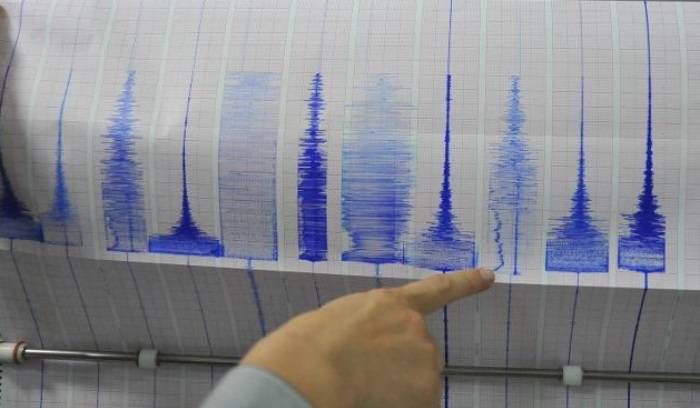
Credit: NNA
On Monday, the director of Lebanon's National Scientific Research Council (CNRS) refuted reports claiming Saturday's earthquake was caused by an explosion in a quarry.
CNRS told L'Orient-Le Jour on Monday that the earthquake felt on Saturday afternoon in Zahle was "99 percent of natural origin," and not caused by an explosion which locals heard at the same time. The link between the earthquake and explosion was suggested on Sunday by Tony Nemr, Professor of Geology and Seismology at the American University of Beirut (AUB), who considered it "probable" that blasting in a quarry had caused the tremor, which measured 3.0 on the Richter scale, according to the CNRS LebQuake app.
CNRS director Tamara el-Zein refuted Nemr's claims. She told L'Orient-Le Jour that scientifically speaking, no one can confirm a link between the blast and the quake, especially without access to the signal recorded by the Bhannes National Geophysical Center.
"According to the signal at our disposal, this is 99 percent a natural earthquake. The remaining percentage of doubt is taken into consideration while waiting to see, on the ground, if it can be confirmed, especially if, at the same time, we are told that a detonation was heard. But we are already 99 percent sure that the earthquake is natural," Zein added.
On Sunday, Nemr said that explosives could indeed trigger earthquakes, especially when explosions "take place in certain areas close to fault lines."
Zein said the CNRS "hasn't made a decision on the subject," because of the lack of evidence.
"When there's an explosion in a quarry or other place, at depth and with a high dosage of explosives, it's not always possible to differentiate the signal from a natural earthquake signal. But Saturday's signal was clearly a natural one," Zein asserted.
"We're still waiting for the results of the army and security forces' investigation into the samples taken [at the quarry]," Zein added.
Zein also suggested that the explosion residents heard might not have been the quarry explosion at all, but perhaps something like military exercises. She said the CNRS is waiting for the investigation results before it issues an official statement on the incident.
In a Tweet posted on Monday, Caretaker Environment Minister Nasser Yassin said that "analysis of the data recorded by the National Geophysical Center, which depends on the CNRS, shows illogical indicators over the years, which are concentrated in specific periods in the afternoons," suggesting human-induced seismic activity. "All this data has been sent to the army, the security forces and the justice system," he said.
Commenting on the Minister's tweet, Zein explained that the indicators Yassin called "illogical," would more appropriately be described as "unusual."
"These include specific timings in which signals are recorded, such as between 9am and 5pm on certain days, or less intensely during holiday periods," Zein explained.
"We have expressed our doubts to the Minister about these clusters, some of which are natural and some of which are induced."